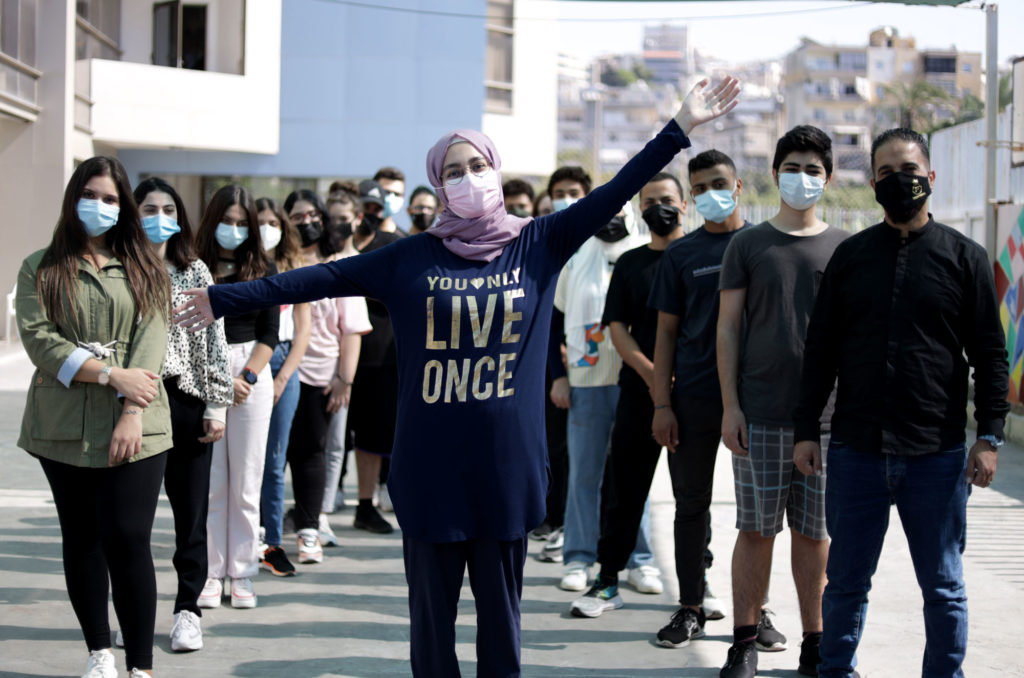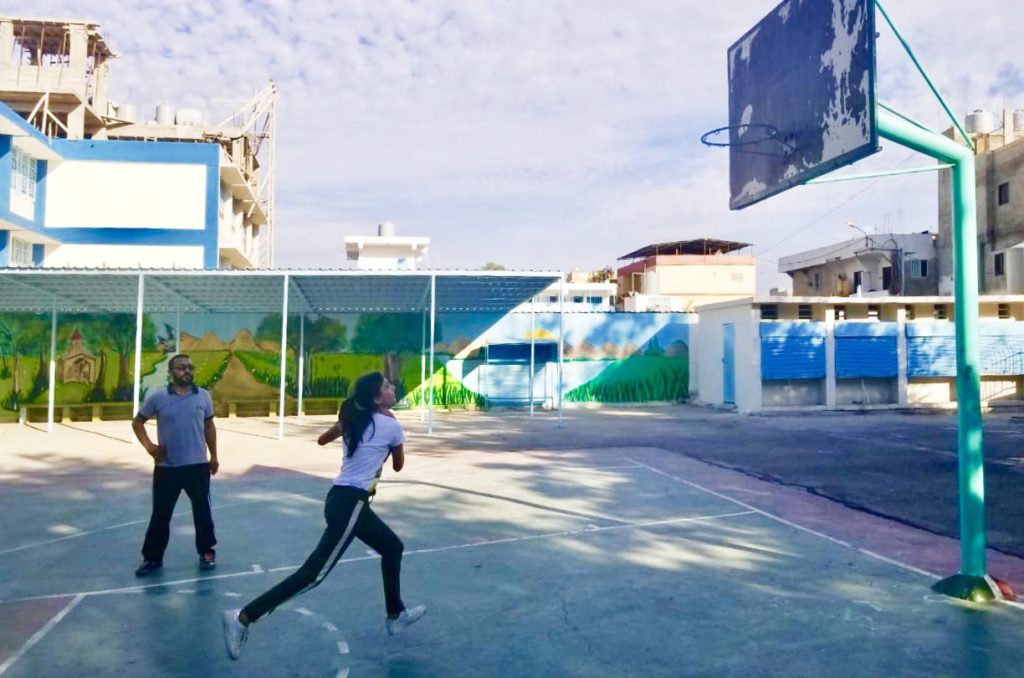Nov, 2016
When Fattoum Khasse was a young girl, she was bullied by her classmates for being overweight. The bullying got so bad it drove Fattoum to drop out of school. No one knew about the irregularity of her thyroid.
Ten years have now gone by, and Fattoum is 23. Fattoum still suffers from thyroid problems, but now she’s also a Syrian refugee with countless other difficulties. She and her family were forced to flee Aleppo and several of her close relatives died in the Syrian war. Her beloved father is mostly absent from her life because he works hard in Beirut to support their family of eight.

“My uncle and my cousin died in the war, and I think sports can relieve some of the stress and trauma we’ve experienced,” Fattoum said
Fattoum lives with her family in the village of Al Masnaa, Bekaa, along the Syrian-Lebanese border. The Bekaa valley is a rural area in Lebanon with hundreds of thousands of Syrian refugees and severely limited resources for them. The basic necessities of life, like water and shelter, are hard to come by. Young women and girls like Fattoum wouldn’t even dare to dream of recreational activities.

Girls Spread the Word on Sports for Development in Lebanon
One day over the summer, Fattoum’s cousin told her about a free Zumba class offered by Anera in the nearby village of Majdal Anjar. Fattoum quickly jumped at the opportunity to get active and have fun. She joined the course and signed up her sister Bushra and her neighbor Rawan, too.
“My uncle and my cousin died in the war, and I think sports can relieve some of the stress and trauma we’ve experienced,” Fattoum said. “It’s also a good way to lose weight. After just one week, I’ve already lost a kilogram (about 2 pounds),” she happily added.
Anera offers sports courses to youth between the ages of 14-24 in throughout Lebanon. The program is implemented in partnership with UNICEF and is made possible through funding from UKAID, German Cooperation and the United States Bureau of Population, Refugees and Migration. Over 100 local organizations have partnered with Anera’s program of sports for development in Lebanon.
Keeping Sports Programs Culturally Sensitive
When it comes to girls from conservative cultures like Fattoum, Anera considers their social context. Mixed-gender classes would be hard to sell, for example, and families stress the importance of safety when their daughters venture out in public.
“My mother and older brother were hesitant to let us join,” said Fattoum. “But the field coordinator paid us a visit and ensured them that the course was safe and close to our home.”
Most of the sports courses are gender segregated, like Fattoum’s Zumba class. Participants tend to prefer this type of course. Many girls and women also prefer to have their sports classes held during the day, and in enclosed spaces where they can unveil.

“Back in Syria, my siblings and I collected cash to go buy a ball to play,” said Sawsan, one of the basketball players.


Strengthening Community Bonds
Anera’s program offers ten different types of sports courses, including basketball, football, yoga, swimming and aerobics. This year, 650 girls and women participated. They come from the local Lebanese, Syrian and Palestinian communities. The courses are one of the few places where refugees and the local population can engage in team activities and strengthen communal bonds.
Fourteen-year-old Nour joined the basketball course at Al Nahda Sports Club in Bar Elias. She quickly made friends with girls from different backgrounds, like Hoda, a Lebanese citizen, and Sawsan, a Syrian refugee from Damascus. Nour is a Palestinian refugee from Yarmouk camp in Syria and, unlike many of her peers, is not new to sports. She used to practice volleyball as a child. “I love sports,” Nour said. “It’s great to be able to learn basketball!”

